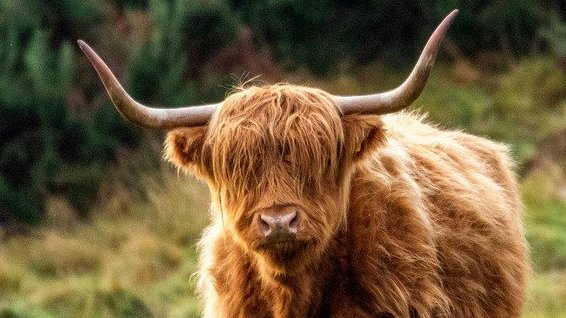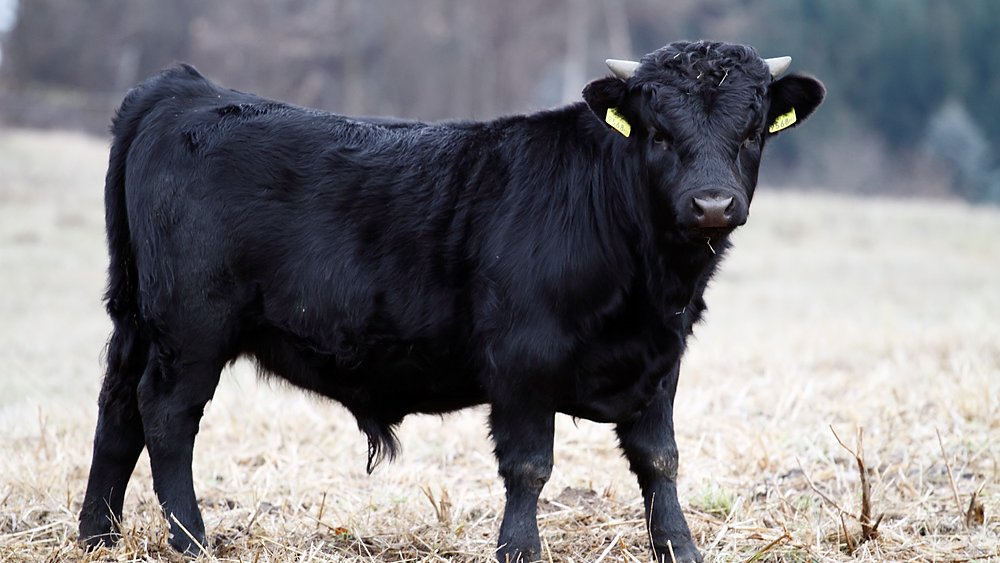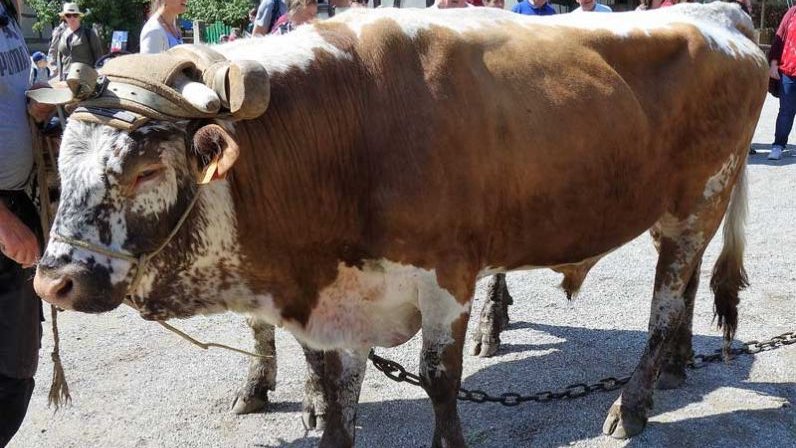OX in #IndoEuropean: #Vedic ukṣā́, #Avestan uxšā, #ProtoGermanic *uhsô ( #Gothic auhsa, #Old Norse oxi, #OldEnglish oxa, #OldHighGerman ohso, #German Ochse, #Durch os), #Welsh ych, #OldIrish oss, #Tocharian B okso, A pl. opsi.
1/16
1/16
This word, my friends, is so fascinating that one could write a whole PhD thesis about it (trust me, I know). The immediate reconstruction for all items in 1/ is a masculine n-stem with a nom. sg. *hₓuksō(n). For such a stem we would expect a nom. pl. *hₓuksō̆nes.
2/16
2/16
However, just as all languages point to or are consistent with an “amphikinetic” nom. sg. *hₓuksō(n), the evidence of three separate and independent branches unequivocally supports reconstructing a “hysterokinetic” nom. pl. *hₓuksénes.
3/16
3/16
This *hₓuksénes is based on Ved. ukṣáṇas (later replaced by the more common and predictable ukṣā́ṇas < *-ō̆́nes), Welsh ychen, and PGmc. *uhsiniz > Old English exen, oexen, indirectly preserved in the unique plural in Modern English ox-en.
4/16
4/16
In both Vedic and Germanic, a plural in *-énes is exceedingly rare; in Welsh, ychen is even the only plural ending in -en. The reconstruction *hₓuksénes is therefore the lectio difficilior. The suffixal ablaut in the pattern nom. sg. *hₓuksō(n), nom. pl. *hₓuksénes, …
5/16
5/16
… oblique *hₓuksn-´ is unexpected and largely unexplained. One usually assumes that the original paradigm was either *hₓuksō(n), -ones or *hₓuksēn, -enes, and that the hybrid paradigm arose through analogy, but I’m skeptical.
6/16
6/16
Be it as it may, a further morphosemantic segmentation of *hₓuksō(n) seems possible: since words for ‘male bovine’ tend to be derived from words referring to ‘strong’ or ‘strength’ (see https://twitter.com/PIE_Animals/status/1339892870707372033) …
7/16
7/16
…the derivational basis could be *h₂éu̯g-es-, a neuter s-stem with a meaning ‘strength, power’, attested directly in Vedic ójas- and Avestan aojah-, and indirectly in Latin augustus ‘majestic’ (*‘provided with power’), Lithuanian áukštas ‘high, tall’.
8/16
8/16
*h₂uksō(n) could be the substantivization (using *-n-) of either an internally derived possessive adjective *h₂ug-és- ‘strong’ (cf. Av. aojah- ‘strong’) or of an “externally” derived *h₂ug-s-ó- with the same semantics.
9/16
9/16
The meaning of *h₂uksō(n) was originally probably ‘young (uncastrated) bull’ (preserved in Ved., Av.), whence ‘castrated male bovine’ (in Welsh, Germ., Toch.) by a quasi universal law of semantic change, see https://twitter.com/PIE_Animals/status/1323218234716360704
10/16
10/16
Castration makes the animals docile and easier to control. Oxen can then be used for plowing and for pulling carts, which an uncastrated bull would not submit to unresistingly.
11/16
11/16
A note on OIr. os(s): the word means ‘bovine’ and ‘deer’ (a semantic broadening also seen in other OIr. terms that refer to both cows and deer such as dam or ag) and is (surprisingly) a neuter o-stem (cf. nom. acc. sg. a n-oss; later also masculine).
12/16
12/16
The regular OIr. outcome of a *h₂uksō(n) > Proto-Celtic *uχsū (and counterpart of W. ych) would have been a masculine n-stem *uss. It’s not very promising to see in oss the unique avatar of an unextended *h₂ug-s-ó-. A possible explanation was proposed by @MWeissOHCGL.
13/16
13/16
He assumes that because of its irregular paradigm, the nom. sg. *uχsū was remade as *uχsōn, underwent regular shortening to *uχson & was then reinterpreted as a thematic neuter. While this account does not answer all remaining questions, it provides an elegant explanation…
14/16
14/16
…for the gender & inflection of the OIr. word.
Fun fact at the end: in older literature one can find quite fanciful etymologies for *h₂uksō(n) & its relation to Latin uxor ‘wife’. Either, the bull is ‘the besprinkler (i.e. with semen)’ (cf. Ved. ukṣáti ‘besprinkles’)…
15/16
Fun fact at the end: in older literature one can find quite fanciful etymologies for *h₂uksō(n) & its relation to Latin uxor ‘wife’. Either, the bull is ‘the besprinkler (i.e. with semen)’ (cf. Ved. ukṣáti ‘besprinkles’)…
15/16

 Read on Twitter
Read on Twitter






